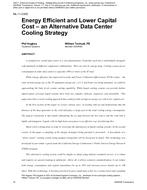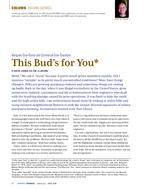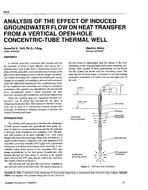For many years the air change rate of a residential dwelling or home had been estimated to be in the area of 3/4 air change per hour, but experience has indicated that many homes were much higher. When attempting to determine a heating/cooling requirement of a home, a difference in infiltration can drastically effect the heating/cooling requirement imposed on a residential space conditioning system.
Measurement of air is one of the more difficult tasks in the heating/cooling industry. For this reason, in June of 1976, an air machine, “The Super Sucker,” was built to depressurize homes so that infiltration could be measured under simulated wind conditions and each area of leakage isolated. Air should be pulled or extracted from the home so that individual leakages can be measured more accurately from the inner surface of the home.
After testing 30 homes (some were new construction and some were existing construction) a summary of data was compiled which indicated that infiltration could be effectively reduced by use of various. caulking compounds. An additional 20 homes have been tested since the time when the summary of 30 homes was prepared, and the breakdown of leakages has remained the same. The results indicate that the average air change for the 50 homes is 1 1/2 air changes per hour rather than the 3/4 air change per hour previously assumed.
Citation: ASHRAE Transactions, Volume 85, Part 1, Philadelphia, PA
Product Details
- Published:
- 1979
- Number of Pages:
- 17
- File Size:
- 1 file , 810 KB
- Product Code(s):
- D-PH-2512


